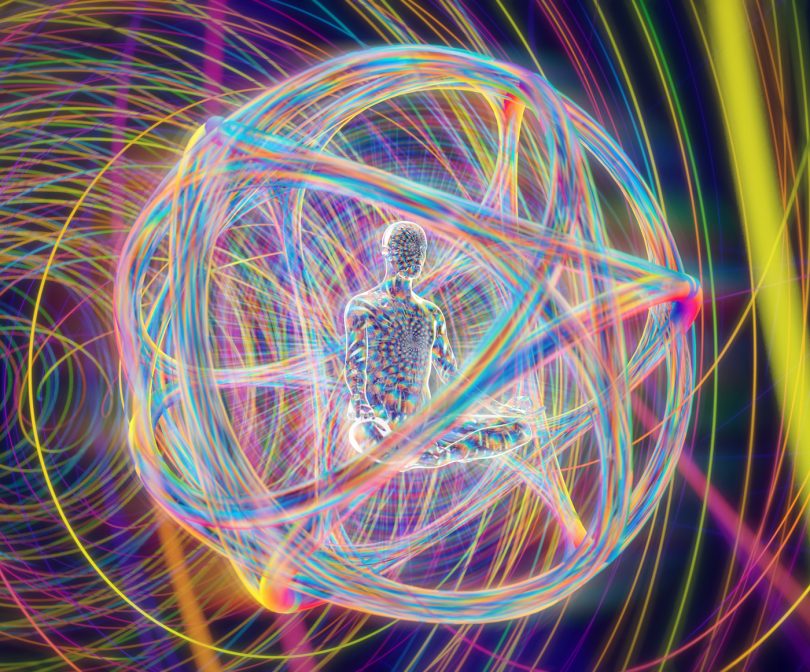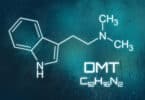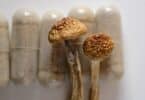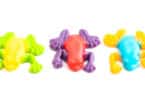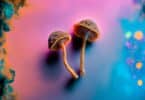What are Psychonaut Communities?
Among psychedelic users there is the basic understanding that psychedelic drugs are not like any others. While most drugs have damaging long-term effects on the user, psychedelics are the usually polar opposite. Where other compounds destroy the psyche, psychedelics heal and restore it and they are known to inspire profoundly sentient and spiritual experiences. Despite their therapeutic abilities, very little is known about these substances and how to safely use them.
Enter the Psychonaut Communities. The term “psychonaut” is Greek in origin and can be roughly translated to mean “mind sailor” or “navigator of the soul”, and is used in reference to those who devote themselves to exploring and expanding their consciousness through use of psychoactive substances, and occasionally, other mind-altering techniques like meditation or sensory deprivation.
When it comes to psychonauts, there’s a tendency to use drugs for self-development and discovery, rather than purely recreational aims, which makes their role in the psychedelic community all the more imperative. But how do you go about finding a reliable psychonaut community? It’s not something you can just go around asking about at a community center, and even most social media sites like Facebook and Instagram will ban you for discussing topics like this.
The answers you seek reside in specialized forums dedicated to exploring the many possibilities of entheogenic compounds, how they work in the human body, and the best general practices to follow. Let’s take a closer look.
Psychedelics are exciting, healing compounds with enormous potential. However, when used improperly, there can certainly be some negative side effects. It’s amazing to know that, with minimal online research, you can find a community of psychonauts to learn more about how to safely utilize these substances. In the meantime, you can find a trove of information in our Psychedelics Weekly Newsletter, your top source for everything related to this growing industry.
The psychonaut explained
Pyschonaut is a noun coming from the word psychonautics, the latter of which is used to refer to the various methodologies that researchers can utilize to learn about and explain the subjective effects of different states of altered consciousness, both drug-induced or via mediation and other techniques. A psychonaut is simply the researcher in this equation, also frequently referred to as “counter-experts”.
German writer Ernst Jünger coined the term in 1970 to describe pharmacologist Arthur Heffter. Heffter is responsible for isolating mescaline from the peyote cactus, and following his discovery, he conducted a series of experiments on himself, recorded the results, and offered us the first “psychonautic” account of modern history. Many other famous psychonauts have followed in his footsteps – by isolating compounds, ingesting them in various ways, then running tests on themselves and documented the results.
These mock experiments, as unstructured as some may have been, set a precedent for contemporary psychonautics. It has become standard psychonaut practice to record the experience in some way, either to share their knowledge with others or reflect on what they learned for themselves. Today, these experiences are often recorded in online forums. A program funded by the European Union known as the Psychonaut Web Mapping Project has been tracking these online accounts to identify trends in within the psychedelic user community.
Searching online, you can find a plethora of insightful and incredibly helpful information regarding psychedelic drugs, however, because they are federally illegal, there is almost nothing official to reference too. Very minimal formal analysis has been conducted on the benefits of these compounds, and what does exist only portrays information from a drug abuse and addiction paradigm, not from the side of wellness and healing.
For example, psilocybin, the active ingredient in many psychedelic mushrooms, is still listed as a Schedule 1 narcotic under the Controlled Substances Act – meaning the government does not acknowledge the medicinal benefits of this substance, and believe it has a high potential for misuse. However, independent studies have found that microdosing with psilocybin is enough to help alleviate several mental health conditions without getting the user “high” or intoxicated in anyway. But because of this classification, no large-scale research can be conducted on any worthwhile, natural psychedelics… and this is where the psychonaut comes into play.
More about psychedelics
Psychedelic drugs, also referred to entheogens, are a subset of hallucinogens which contain compounds that can alter perception. The term entheogens come from Greek and can be roughly translated to mean “building the God within”. . The active compounds are usually found in nature, like psilocybin or mescaline, but they can also be manmade, like LSD.
The high produced by these types of drugs is known as a ‘trip’, and can include various types of visual, auditory, and sensory hallucinations. The intensity of a trip can vary dramatically based on the specific compound and dose consumed. Sometimes, a user will experience no hallucinations at all, but rather a sense of general well-being, spiritual connectivity, and euphoria.
If you’ve ever heard someone mention a ‘bad trip’, this means they had some type of negative side effects or maybe even scary hallucinations. Physical symptoms of a bad trip can include but are not limited to: irregular heartbeat, nausea, chills, sweating, and anxiety. Bad trips, due to their negative nature, can seem more intense than good trips, although this isn’t necessarily accurate.
Dosing and setting, among many other factors, can significantly impact a psychedelic trip, so you want to make sure that you’re doing everything possible to ensure an uplifting and beneficial high. That includes surrounding yourself with familiar people that make you feel comfortable, as well as picking a location that you know you’re safe in. This is another reason most present-day, medical (not recreational) users of psychedelics consume the drugs in micro-doses.
The importance of building psychonaut communities
Community is crucial to survival, and it’s a concept deeply ingrained in the experience of being human… but it goes even beyond that. Many other living creatures – like other mammals, birds, reptiles, and cephalopods – also share some type of communal aspects and tendencies. Defined technically, a “community” is any group whose members have something in common, such as a shared government, geographic location, culture, dietary and lifestyle needs, or heritage.
Psychedelic communities are no exception. Within these groups of psychonauts, aspiring psychonauts, and students, different people play different roles, all with the overarching goal keeping others within this community safe, as well as shedding some favorable light onto the idea of therapeutic psychedelic use.
No matter how much we are told that these compounds have no medicinal value, we know that to be incorrect. Psychedelics have been used both medically and recreationally for thousands of years, and that will never change. The gap in formal education and legal regulation has led to this overwhelming need for psychonaut communities.
These cliques are arguably more important than stoner groups, because when used incorrectly, psychedelics can carry more risks than cannabis. Since there is no practical information available, like basic dosing, tips on how to stay safe and have a successful trip, and so on – anyone interested in exploring the psychedelic realm will need to do their own research.
As a matter of fact, this study identified “strong, unified and unique communities of recreational drug users that can provide an insight into the growing market in new drugs and drug compounds, and may be crucial elements in future research, learning about harm reduction and prevention strategies, and ways to enhance the user’s experience.”
Psychonaut Communities at Reddit
Ah, Reddit. A literal treasure trove of underground information. Whenever I have questions about a drug that I’m unfamiliar with, Reddit is one of the first places I check for answers. Everything from product and brand suggestions, to trip reports, tips and recommendations, dosing information, and so much more; you can really learn a lot from a few hours spent scrolling through reddit forums, or as they’re officially known, subreddits.
When it comes to the psychonaut community, word of mouth is critical, and these days most “word of mouth” recommendations are found online. Most of our interactions, both business and personal, have moved to the digital domain, so it makes sense that conversations about psychedelics are following the same path.
Now back to subreddits. These various communities under the Reddit umbrella cover pretty much every topic you can imagine. There are dozens of subreddits dedicated to psychedelics discussions, but some are more popular than others. It’s important not to take everything you read on there at face value, because, for one, everyone’s experiences will vary; and two, you simply can’t believe everything you read online. But it’s as good a resource for anecdotal information as you can find these days.
Other psychonaut communities to check out
Hive/Thevespiary – The Hive, as it was previously known, is another discussion board known for covering a lot of the chemistry behind psychedelic compounds such as MDMA, mescaline, 2C-B, DMT, 5-MeO-DMT, psilocin, psilocybin, and LSD. Due to hosting issue, the Hive was shut down in 2004. In 2015, the site was made visible but only as an archive page. That also ended up getting shut down, but it’s successor, Thevespiary, is now the go to site for a variety psychedelics-related news and articles, synthesis guides, and scientific information.
Quora – Quora is a question-and-answer forum founded in 2009 and based out of Mountain View, California. It was launched publicly the following year, and instead of being a full-on discussion board, it’s structured in a way that users submit a question that gets posted through the site, and other users can later provide answers. But there is no back-and-forth discussion between the person asking and the people answering. Just like other online sites dedicated to providing answers, you can find a lot of information about psychoactive substances on Quora.
4Chan/420Chan – 4chan is an anonymous English-language imageboard website launched in 2003 by Christopher “moot” Poole. On 4chan you can find many of the topics you would find on Reddit such as anime, video games, music, literature, fitness, and politics; as well as a lot of information about psychedelics. Another similar site, called 420chan which is almost the same as 4chan but was founded in 2005 by Aubrey Cottle, and is dedicated specifically to cannabis and psychedelic drug culture.
Conclusion
If there’s anything to take away from all this, it’s that people are incredibly adaptable and will find ways to connect with others, learn, and build communities around the things they find worthwhile. Within all communities you can find subcommunities of people with shared goals and interests – be it parenting groups, workout groups, study groups, and of course, informative online psychonaut communities. The beauty of the internet is that it allows us to connect with so many different people from whom we can gain knowledge, insight, and even lifelong friendship.

